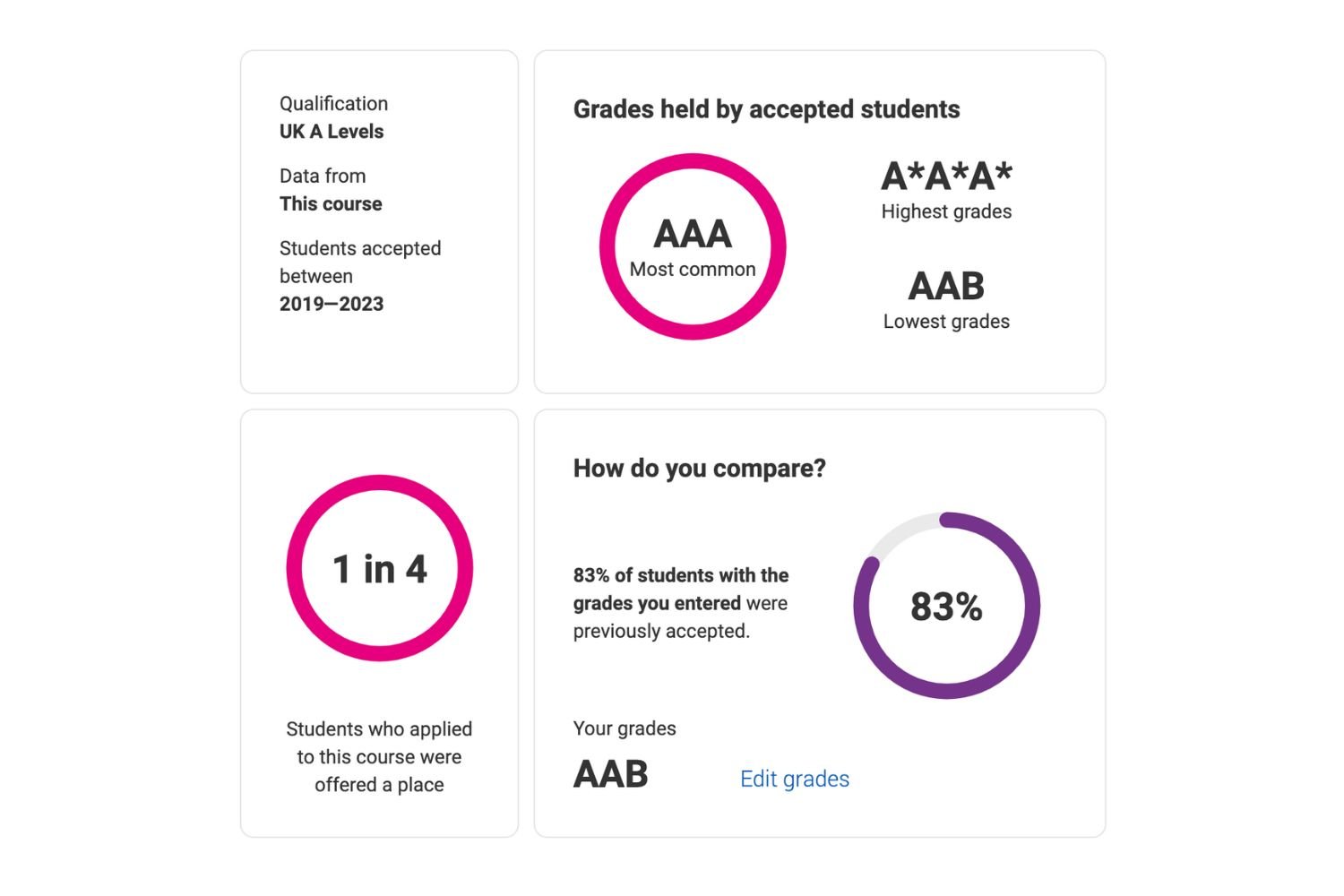UCAS historical entry grades data, Frequently Asked Questions, and doing your best with what you know.
😊 Welcome
We are back! And this week we look at a hugely significant new initiative by UCAS to help demystify entry grades for applicants: known as “Entry Grades Data (Beta)”.
Secondly, you know when you have a question about the UCAS process that you just can’t see the answer to in the standard information? Turns out the answers might be easier to find than you think!
And finally, we learn a bit about just doing your best.
✍️ New UCAS historical entry grades data: Just how useful is it?
For the very first time UCAS have introduced information on their website that attempts to show you what grades students actually had when they entered different courses, rather than just showing the university’s published entry grades.
Nearly 50% of students, you see, get into their course with qualifications below the level of those universities published by the universities.
So when a course says you need AAB to get in, it turns out, you don’t!
This new data is aimed at making this all a bit clearer and more transparent, so that you can make better decisions about which courses to apply to.
Simple right? You know what students needed to get in in the past, so you can choose the right course depending on what you expect to get?
Well, not quite. Data can be a tricky thing, not easy to present clearly, and not easy to read accurately.
I’ll try to explain…
💡 Did You Know?
UCAS has a frequently asked questions page on their website, pre-populated with hundreds of questions that students often ask, but can't easily find the answers to.
So, next time you have a quick question about UCAS, rather than heading to Google, social media or ChatGPT, why not check there first?
You might just find the answer much faster than you think!
📢 Quote of the week
“Do the best you can until you know better. Then when you know better, do better.”
Maya Angelou
Author
I think this is particularly pertinent during exams. The best you can do, with what you know right now, is literally all that anyone can possibly expect of you!
⌛ And finally…
Have you ever tried to explain the whole of the UCAS system to someone in just five minutes? Nope? Well neither had I, until now.
So, if you are a student who is right at the start of the process, are a parent who just wants to get the overview, or are a teacher and want an overview to present to your form class, have a look at this: a five minute video explainer of the whole UCAS process.
It’s Part 1 of my ‘How to Write Your UCAS Personal Statement’ course, but works equally well as a stand alone introduction to UCAS.
Thanks for reading!
Jonathan
🎯 In case you missed it
📅 Next week
I hope to be back in two weeks' time, with the previously promised article about whether “Finding your Passion” is really a good way to choose your course.

